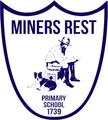Learning Specialists

Literacy
Some tips for discussing news and current events with your children...
Questions encourage your child to think critically about events help foster empathy. Questions also help your child to develop oral fluency when discussing social issues.
Questions you might ask when discussing a news story or current event include:
- What do you think caused the event?
- How do you think this will affect people?
- Is it fair?
- Why do you think people think that/do that?
- What do you think will happen next?
- What could fix the problem?
Some other activities to develop your discussion:
- Read several articles together on the same issue to get different opinions. Then discuss the different opinions.
- Have a debate on a topic, with you and your child taking different sides of the issue.
- Download and listen to podcasts on an issue, and discuss.
- Discuss different “What if?” scenarios. This will help develop your child’s problem solving and imagination.
For further information, follow the link https://www.education.vic.gov.au/parents/learning/Pages/literacy-years-3-to-6.aspx
Numeracy
Some activities to support early maths learning.
- Playing with and describing 2D shapes and 3D objects.
- Describing where things are positioned, for example, north, outside, behind, opposite.
- Describing, copying, and extending patterns found in everyday situations.
- Using time-words to describe points in time, events and routines (including days, months, seasons and celebrations).
- Comparing and talking about the duration of everyday events and the sequence in which they occur.
- Saying number names forward in sequence to ten (and eventually to 20 and beyond).
- Using numbers to describe and compare collections.
- Using perceptual and conceptual subitising (recognising quantities based on visual patterns), counting and matching to compare the number of items in one collection with another.
- Showing different ways to make a total (at first with models and small numbers).
- Matching number names, symbols and quantities up to ten.

